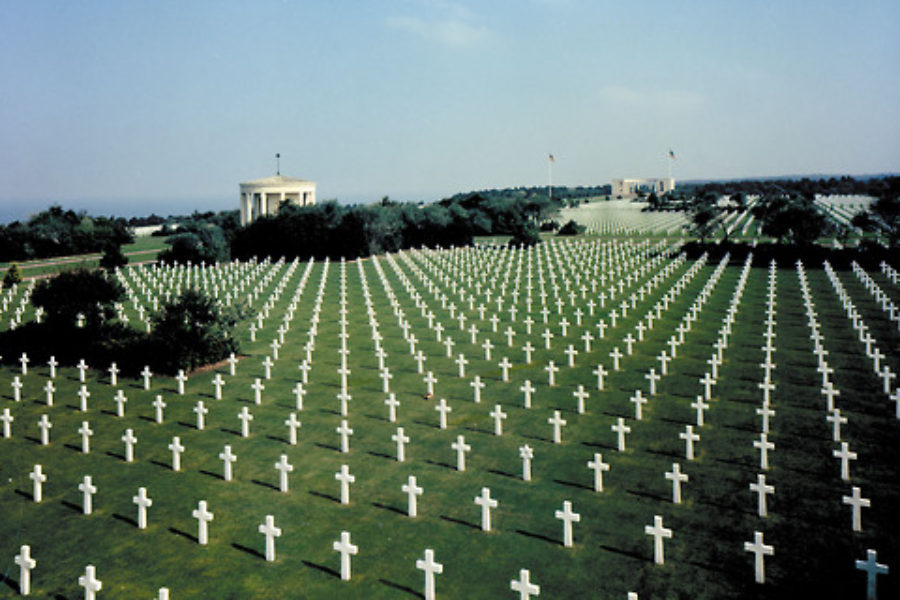From 1958 to 1962 I attended Marist College, a Catholic military boys high school in Atlanta. Every year our cadet “battle group” would march in the Armistice Day parade. In those days, the Atlanta public high schools had Junior Reserve Officer Training Corps programs whose participants would also march.
The public school JROTC uniforms consisted of World War II vintage Eisenhower jackets and matching dark brown trousers. In contrast, our dress uniforms were comprised of blue-grey tunics and white “duck” pants. In short, we looked different and were easily identifiable as the boys who went to Catholic school.
In those long ago days, there were a fair number of people in Georgia who actually believed that Catholics were digging a tunnel to Rome and plotting a takeover of America by the Pope. There was purportedly a statute on the books authorizing county inspectors to search convents for the purpose of liberating any Protestant virgins who might be held captive by the nuns. The Ku Klux Klan was active as were the National White American Party and similar groups. All in all, contact with certain groups of rednecks could be a bit touchy.
Now I’m not accusing the parade organizers of being anti-Catholic, but every year the Marist cadets wound up marching down Peachtree Street directly behind the Fulton County Sheriff’s Mounted Posse which consisted of about 20 deputies riding fed-to-bursting horses who left steaming mounds of excrement in their wake. This created a fecal obstacle course that forced us to side step and guide around those droppings to the point where our ranks would become ragged, out of step and disorganized. Some of the less nimble cadets wound up with squishy, dung-covered shoes.
At the end of the parade route, we would deposit our M-1 rifles in the school’s armory truck for transport back to campus. We were then dismissed for the day. And that’s when the fun would begin.
For every one of us in our distinct uniforms there had to have been about twenty of them in their Eisenhower jackets. Red blooded boys being red blooded boys, fights were not uncommon.
The challenge to combat frequently took the form of what was then a standard verbal taunt regarding our uniforms.
“Hey, bellhop!” a public school miscreant would shout.
This insult mandated the response, “The last belle I hopped was your mother!”
And boom! The fight was on.
Now keep in mind that Armistice Day was supposed to be an observance of the last day of World War I, the war to end all wars. But every year, right there on the streets of Atlanta, teen-age blood would flow and teeth would be scattered like Chiclets because…well, just because. In addition to World War II, the Korean conflict and all of the wars since 1918, this annual Battle of Atlanta was a minor but ironic demonstration that the human race is simply hard-wired to fight and will shed blood at the drop of an insult and for no particularly good reason.
It wasn’t until long after high school that I became intimately aware of the sad, true meaning of Armistice Day and its brutal legacy. In 1971, my young wife and I were touring the United Kingdom. We visited the farm in north Wales from which my grandfather departed for a new life in America. And that’s where we met my father’s first cousin, a robust senior citizen who had fought in World War I.
He had been a Regimental Sergeant Major in the Royal Welsh Fusiliers and had seen a great deal of combat. He showed me a box filled with medals, his letters home and fading, sepia-toned photographs of the men in his unit. As we examined each picture, he fell into a litany. This one was killed in this battle, that one one died of disease, this one was gassed and died in hospital, and so on.
But what struck me was that the “men” in the photographs appeared to be about the same age as my friends and I were when we marched down Peachtree Street. And that proved to be true. As the RSM explained, he had started the war as a private in his late teens. And his rapid promotion up the enlisted ranks had to a great extent been the result of the massive attrition of the noncoms who came before him.
A few years ago, I was vividly reminded of my sobering visit with the old RSM when for the first time I heard The Green Fields of France, a haunting ballad sung by the Fureys. Its lyrics are addressed to “young Willie McBride” a British soldier who was “only 19” when he “joined the great fallen in 1916.” One of the verses poses the question to the deceased Willie, “are you a stranger without even a name, enshrined forever behind a glass frame, in an old photograph torn battered and stained, and fading to yellow in a brown leather frame”. When I heard that, I immediately thought of the RSM’s box of old photos and had to swallow hard. It’s that kind of song.
Here’s a link to a video of the Fureys singing the ballad. While it’s about the British dead of World War I, its import applies equally to all of our dead from all of our wars.
May they rest in peace.

2 Comments
Leave your reply.